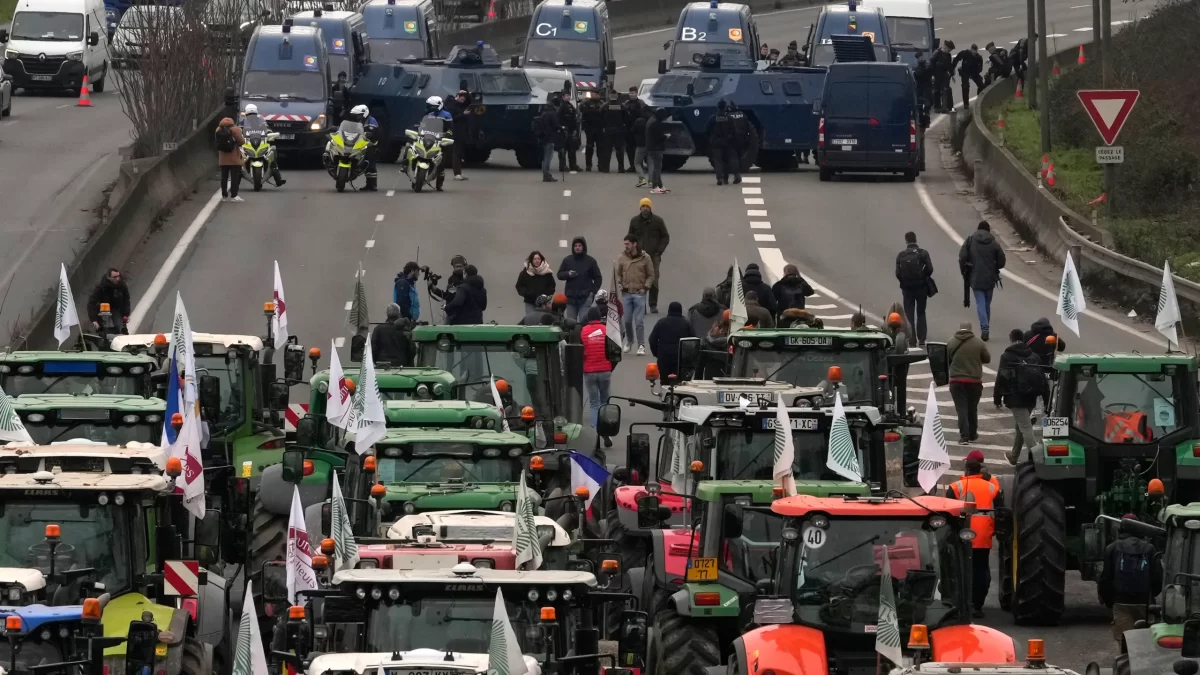In the midst of oppressive wages, taxes, strict agricultural and environmental regulations, as well as intensifying foreign market competition, French farmers have found themselves at a tipping point. For years, they have grappled with the ever-increasing difficulty of sustaining their livelihoods; now, feeling fatigued and frustrated, over 10,000 farmers across France have mobilized in protest and taken to the streets.
Over the past few weeks, demonstrations have sprung up across France in which farmers have driven out onto roads and barricaded the roadways with tractors and hay bales, blocking traffic from passing. According to French Minister of the Interior, Gérald Darmanin, some 10,000 assembled farmers have blocked 100 spots along several of France’s major roads and had planned to advance on to Lyon and Paris earlier this week. While these tractor blockades have been largely peaceful, they are certainly not without impact. In addition to creating major traffic problems around French cities, the blockades have also expanded to roadways leading out to other nations, disrupting the transport of millions who live around the region.
The French government first attempted to quell and dispel the protests by dispatching federal forces to temporarily halt the advance of the tractor convoys – but this would be far from enough to pacify the farmers. On Thursday, farmers swarmed outside the location of the EU summit at Brussels, throwing produce at police and setting fire to piles of hay by the European Parliament building.
In a concession, France’s Prime Minister Gabriel Attal pledged increased wages, protection against foreign competition, as well as eased regulations. In response, FNSEA and JA, two of the largest French farmers’ unions, have called for farmers to suspend protests.
Others are still demanding more change. Another point of controversy has developed over a proposed trade deal between the EU and Mercosur, a Latin American trade bloc comprising Brazil, Argentina, Paraguay and Uruguay. French farmers fear that the signing of the deal will present even more competition for them, especially within the meat industry. In light of the recent mounting unrest, France has opted to take a stance of opposition regarding the deal. Macron, under much pressure and public scrutiny, has appealed to the president of the European Commission, Ursula von der Leyen, to halt the signing of the trade deal.
French Finance Minister Bruno Le Maire expressed concerns on Wednesday, stating, “This Mercosur deal, as it stands, is not good for our farmers. It cannot be signed as is, it won’t be signed as is.” Additionally, Le Maire asserted that France has the power to ensure that the deal will not go through. “Believe me, when France wants something in Europe, it has enough clout to impose it.”
However, several other members of the EU have already backed the agreement. In fact, the trade deal has been under negotiation for the past two decades. As Brazil declines to comment on Macron’s opposition and France’s interests continue to clash with those of other EU members regarding Mercosur, the influence of France on the European stage will be tested in the weeks to come.













































































































































